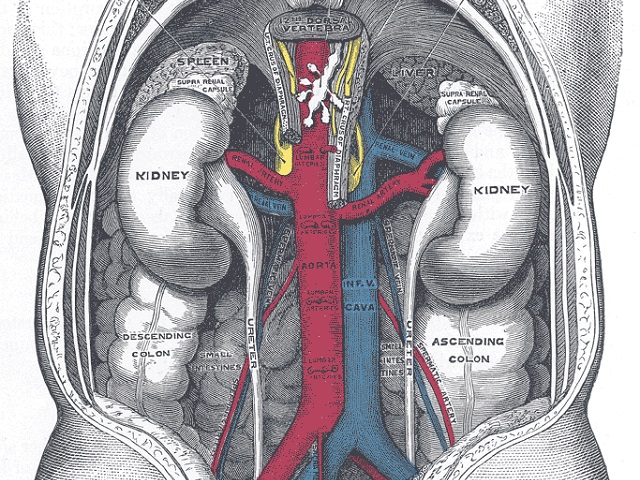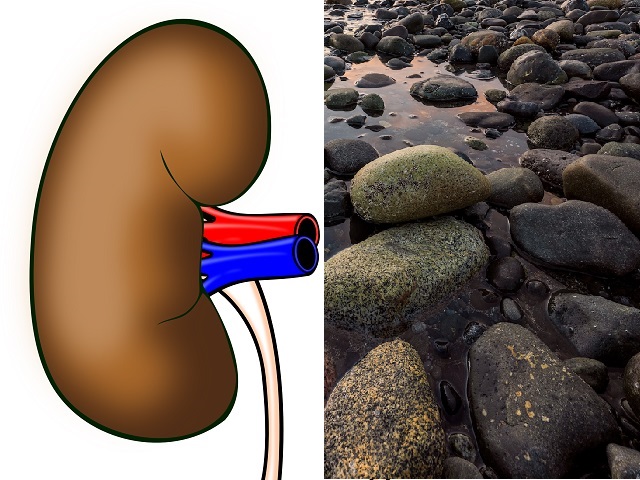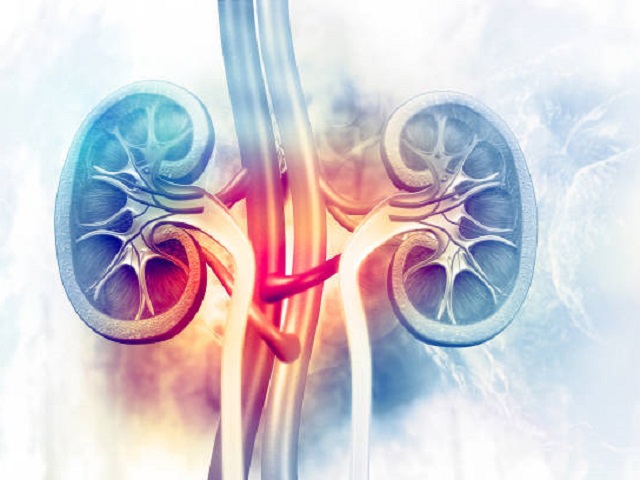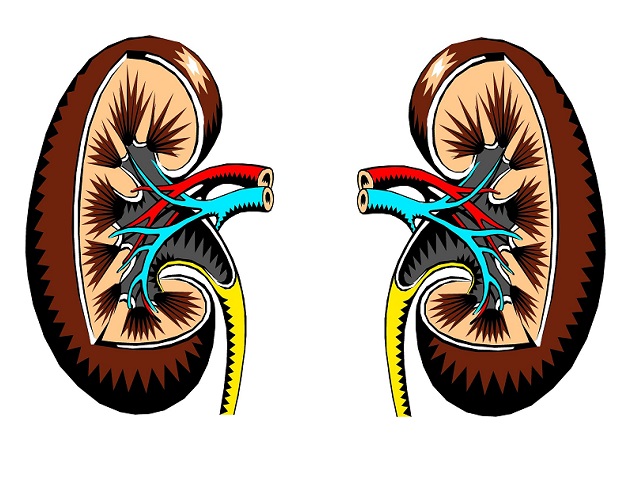10 Signs You May Have Chronic Kidney Disease -- Symptoms, Causes, Effects, Treatment and Prevention
Chronic kidney disease (CKD) is a progressive and irreversible condition characterized by the gradual loss of kidney function over time. It is a significant health problem worldwide, affecting millions of people. CKD can lead to various complications and is associated with increased morbidity and mortality.
Symptoms of Chronic Kidney Disease:
The following are the common symptoms experienced by individuals with chronic kidney disease:
- Fatigue and weakness: As kidney function declines, there is a buildup of waste products in the body, leading to fatigue and a general feeling of weakness.
- Swelling in the legs, ankles, or feet (edema): The kidneys play a vital role in maintaining fluid balance in the body. When they are impaired, fluid can accumulate, resulting in swelling in the extremities.
- Increased urination, especially at night (nocturia): CKD can lead to changes in urine output and frequency. Increased urination, particularly during the night, can be a symptom.
- Foamy or bubbly urine: Proteinuria, the presence of excess protein in the urine, can cause the urine to appear foamy or bubbly.
- Blood in urine (hematuria): CKD can damage the kidneys' filtering units, causing blood to appear in the urine.
- Persistent itching: Buildup of waste products and toxins in the body can lead to persistent itching, often affecting the skin.
- Loss of appetite: CKD can cause a decrease in appetite and result in unintentional weight loss.
- Muscle cramps: Electrolyte imbalances, such as low levels of potassium or calcium, can lead to muscle cramps.
- Nausea and vomiting: As waste products accumulate in the body, it can cause nausea and vomiting.
- Difficulty concentrating and mental fog: CKD can affect cognitive function, leading to difficulties with concentration, memory, and overall mental clarity.
Diagnosis of Chronic Kidney Disease:
To diagnose chronic kidney disease, the following tests and evaluations are conducted:
- Blood tests: A blood test is performed to measure the level of creatinine, a waste product that is normally filtered by the kidneys. The estimated glomerular filtration rate (eGFR) is also calculated to assess kidney function.
- Urine tests: A urine sample is analyzed to check for the presence of proteinuria (excess protein) and hematuria (blood in urine).
- Imaging tests: Imaging techniques like ultrasound or CT scan may be used to visualize the kidneys and detect any structural abnormalities or obstructions.
- Kidney biopsy: In some cases, a small sample of kidney tissue is extracted for microscopic examination to determine the underlying cause of kidney damage.
Causes of Chronic Kidney Disease:
Chronic kidney disease can be caused by various factors, including:
- Diabetes mellitus: Uncontrolled diabetes can damage the blood vessels in the kidneys, impairing their function.
- High blood pressure (hypertension): Persistent high blood pressure can strain the blood vessels in the kidneys, leading to kidney damage over time.
- Glomerulonephritis: Inflammation of the kidney's filtering units (glomeruli) can result from infections, immune system disorders, or other underlying conditions.
- Polycystic kidney disease: Inherited disorder characterized by the formation of fluid-filled cysts in the kidneys, gradually replacing healthy tissue.
- Urinary tract obstruction: Blockages in the urinary tract, such as kidney stones or an enlarged prostate, can cause urine to back up and damage the kidneys.
- Medications, toxins, or infections: Prolonged use of certain medications (e.g., nonsteroidal anti-inflammatory drugs), exposure to toxins (e.g., heavy metals), or recurrent infections can harm the kidneys.
- Autoimmune diseases: Conditions like lupus or vasculitis can cause inflammation and damage to the kidneys.
- Family history of kidney disease: A family history of kidney disease can increase the risk of developing CKD.
Effects of Chronic Kidney Disease:
Chronic kidney disease can have wide-ranging effects on the body, including:
- Accumulation of waste products and toxins: As kidney function declines, the body becomes less efficient at removing waste products, leading to their buildup in the blood.
- Fluid and electrolyte imbalances: Impaired kidney function can disrupt the body's fluid and electrolyte balance, potentially causing edema, electrolyte abnormalities, and high blood pressure.
- Anemia: The kidneys play a role in producing erythropoietin, a hormone that stimulates red blood cell production. CKD can lead to decreased production of erythropoietin, resulting in anemia.
- Bone mineral disorders: Kidneys help regulate the levels of calcium and phosphorus in the body. In CKD, these mineral imbalances can lead to weakened bones, increased fracture risk, and renal osteodystrophy.
- Cardiovascular complications: CKD is associated with an increased risk of cardiovascular diseases, including high blood pressure, heart disease, and heart failure.
- Weakened immune system: Impaired kidney function can weaken the immune system, making individuals more susceptible to infections.
- Increased risk of infections: CKD can increase the risk of urinary tract infections, kidney infections (pyelonephritis), and other infections throughout the body.
Treatment of Chronic Kidney Disease:
The treatment of chronic kidney disease aims to slow its progression, manage complications, and preserve kidney function. Treatment options include:
- Medications: Medications may be prescribed to control underlying conditions contributing to CKD, such as high blood pressure or diabetes. Other medications may help manage symptoms, control mineral imbalances, or prevent complications.
- Dietary changes: A kidney-friendly diet, low in sodium, protein, and phosphorus, may be recommended. This can help reduce the workload on the kidneys and manage associated complications.
- Fluid restriction: In advanced stages of CKD, fluid intake may need to be limited to prevent fluid overload.
- Dialysis: Dialysis is a procedure that involves filtering waste products and excess fluids from the blood when the kidneys are no longer able to perform this function adequately. There are two main types of dialysis: hemodialysis and peritoneal dialysis.
- Kidney transplantation: For eligible candidates, kidney transplantation may be an option. It involves surgically replacing the failed kidney with a healthy kidney from a living or deceased donor.
Prevention of Chronic Kidney Disease:
While some causes of chronic kidney disease, such as genetic conditions, cannot be prevented, certain measures can help reduce the risk or slow the progression of CKD:
- Control blood sugar levels (in case of diabetes) and maintain a healthy weight.
- Manage and control high blood pressure through lifestyle modifications and medications as prescribed by healthcare professionals.
- Quit smoking and avoid excessive alcohol consumption.
- Stay hydrated and maintain a balanced diet, limiting the intake of processed foods, sodium, and unhealthy fats.
- Engage in regular exercise and physical activity to promote overall health and manage underlying conditions.
It is important to note that the information provided is for general knowledge purposes. It is essential to consult with healthcare professionals for an accurate diagnosis, personalized treatment plan, and advice specific to individual circumstances.
References:
Mayo Clinic. (2022). Chronic kidney disease. Retrieved from https://www.mayoclinic.org/diseases-conditions/chronic-kidney-disease/symptoms-causes/syc-20354521














